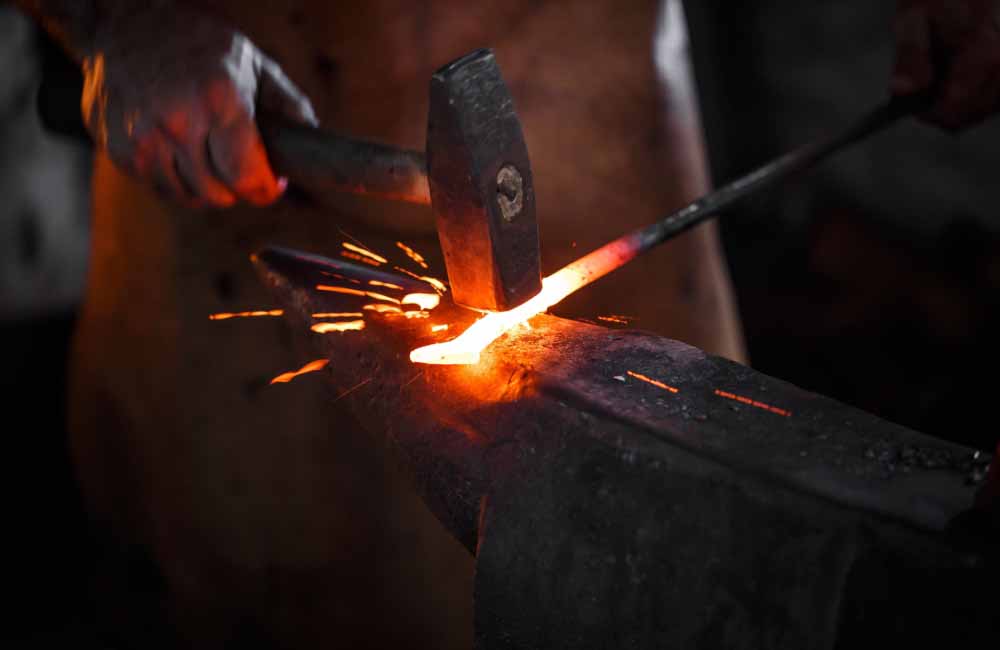The world is rapidly evolving as the technology and automation of the 21st century become entwined with almost every facet of modern life. However, there’s been a reaction to this in recent years with what is being called the lost skills revival.
Essentially, it’s a movement to teach people some of the skills that helped human beings improve living conditions and create societies through the centuries. There’s justified concern that without a focus on lost skills revival, many of these important human accomplishments will eventually die out, never to return.
Some people might think this is no big deal. But they will on the day the SHTF or the economy takes a nosedive. And even if those two terrifying prospects never materialize, knowing – and passing down – traditional skills and knowledge helps keep individuals, their families, and their communities strong and independent.
These are traditional abilities and knowledge that were once commonplace but have gradually faded from modern society. The lost skills revival is a cultural resurgence aimed at preserving and passing down these valuable competencies.
The Lost Skills: What Are They?
Lost skills encompass a wide range of practical abilities that were once integral to daily life. These skills were essential for survival, self-sufficiency, and a sense of community. They include activities like sewing, knitting, woodworking, foraging, food preservation, hunting, blacksmithing, and more. These were once considered basic life skills, passed down from generation to generation.
They are traditional abilities and knowledge that were once commonplace but have gradually faded from modern society. The lost skills revival is a cultural resurgence aimed at preserving and passing down these valuable competencies.
There are many reasons why these skills have faded. Generally, as the world industrialized and technological advancements took center stage, many skills became obsolete. Mass production, convenience-driven consumerism, and a focus on efficiency led to a decline in the practice of these crafts. In their place, specialized professions emerged, making it easy for people to rely on experts for services that were once done at home.
The Importance of Reviving Lost Skills
One of the primary benefits of reviving lost skills is the restoration of self-sufficiency and resilience. In times of crisis or emergency, individuals with diverse skill sets can better adapt and respond to challenges. Being able to grow your own food, repair basic household items, or even create your own clothing can provide a sense of security and independence.
Lost skills are often deeply intertwined with cultural heritage and traditions. Preserving these skills not only helps maintain a connection to our ancestors but also fosters a sense of identity and belonging within a community.
Many lost skills promote sustainable practices. For example, learning to mend and repurpose clothing reduces waste, while growing your own food can lessen reliance on industrial agriculture. By adopting these skills, individuals can play a part in reducing their environmental footprint.
Engaging in activities that require manual dexterity and creativity has been shown to have positive effects on mental well-being. Learning and practicing lost skills can provide a sense of accomplishment and purpose, contributing to overall life satisfaction.
The lost skills revival is a collective effort to reintegrate these traditional competencies into modern life. Workshops, classes, online tutorials, and community events are just a few of the ways this movement is gaining traction. Social media platforms also play a crucial role in connecting enthusiasts and experts, allowing for the sharing of knowledge and inspiration.
The lost skills revival is a movement that recognizes the value of traditional knowledge and practical abilities that have been marginalized in our rapidly advancing world. By reviving these lost skills, individuals can gain a greater sense of self-sufficiency, preserve cultural heritage, contribute to sustainability efforts, and enhance their overall well-being.
Embracing these skills not only enriches our lives but also helps build a more resilient and connected society. So, whether it’s knitting a scarf, tending to a garden, or crafting a piece of furniture, a growing number of people want to embrace the lost skills and celebrate the heritage they represent.







Leave A Comment